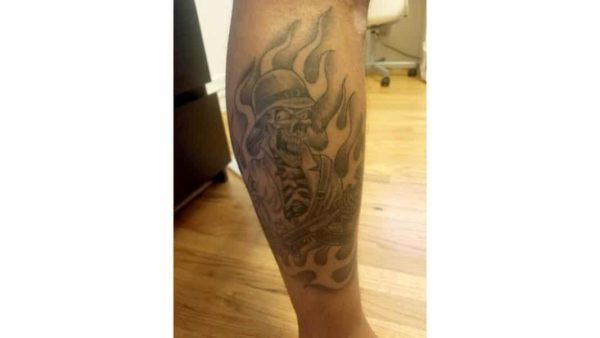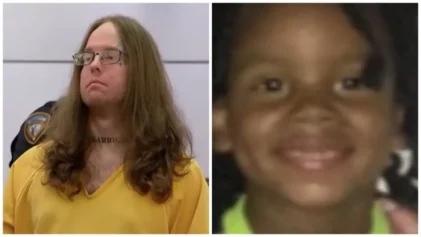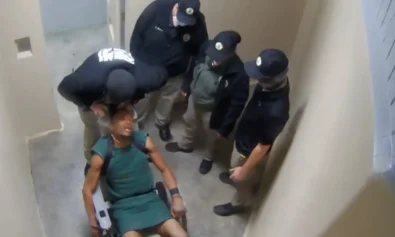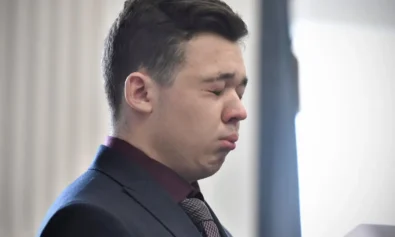A superior court judge has ordered Los Angeles County Sheriff’s Department officials to reveal whether it knows the names, or has a list of, deputies with matching skull tattoos believed to be linked to a secret society at its Compton station.
The allegations are currently at the center of a wrongful death suit filed by the family of Donta Taylor, a Black man fatally shot by deputies back in 2016, The Los Angeles Times reported. An attorney for the family argues the shooting was carried out by members of a racist deputy clique that targeted the county’s African-American residents.

The infamous skull tattoo is rumored to be linked to a racist clique with the L.A. County Sheriff’s Department’s Compton station. (Image courtesy of Sweeney Firm / Glickman & Glickman)
Members of the alleged group are thought to have matching ink featuring a skull with a rifle and military-style helmet with flames all around it.
Superior Court Judge Michael P. Vicencia last month stopped just short of ordering the department to force its deputies to bare their skin, proving they don’t have the infamous tattoo. Instead, he left open the possibility that deputies might be forced to answer a few questions about the tattoos they do have.
“I’m not saying you shouldn’t get the information,” Vicencia told Taylor family attorney John Sweeney at the hearing in Long Beach on Oct. 25. “But this is unusual. I don’t know I’ve ever seen this before.”
Rumblings of a police secret society first emerged 30 years ago after an L.A. judge accused deputies at the Lynwood station of running a “neo-Nazi, white supremacist gang” called the Vikings. In July, city leaders feared a new clique of deputies who bonded over their violent, oftentimes aggressive, police work had formed at the department’s Compton station.
One of the deputies involved in Taylor’s shooting, Samuel Aldama, admitted in a deposition earlier this year to having the skull tattooed on his calf. Aldama said there are as many as 20 other officers in the Compton station branded with the same ink.
Chandler Parker, an attorney for the county, wasn’t thrilled about the idea of questioning deputies about their tattoos, however, arguing it was “inappropriate” and an invasion of privacy. He told Vicencia last month that the county hasn’t conducted any surveys about which deputies have the matching tattoos.
“We don’t know the names. We never sent an email asking for that,” Parker said. “There was never a broad inquiry by [Compton station] Capt. [Michael] Thatcher or anyone for deputies to reveal themselves.”
Sweeney thinks otherwise.
“I don’t believe for one second that they don’t know who has these tattoos,” he said.
To get to the bottom of the issue, Vicencia told Sweeney he can file what’s called a Pitchess motion requesting access to an officer’s personnel file, according to The Los Angeles Times. The process would allow Compton station officers to object before any information about the tattoos is revealed.
Moreover, members of the department’s civilian oversight commission have since agreed to launch an ad hoc committee to address the issue of secret societies.


